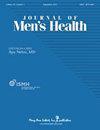The moderating role of individualism/collectivism in predicting male Chinese university students' exercise behavior using the theory of planned behavior
IF 0.6
4区 医学
Q4 Medicine
引用次数: 0
Abstract
The purpose of this study was to check the moderating role of individualism/collectivism in predicting male Chinese university students’ exercise behavior using the theory of planned behavior (TPB) model. The TPB model was validated through SEM (structure equation model), and the moderating effect of individualism and collectivism was validated through a hierarchical regression and simple slopes analysis using a sample collected from 115 male Chinese university students. The results showed that the product terms of individualism and TPB factors were not able to significantly predict exercise intention after inclusion in the regression equation, nor were the product terms of collectivism and PBC (perceived behavior control) able to do so. However, the product terms of collectivism and attitude, as well as collectivism and SN (subjective norm) were able to significantly predict exercise intention when included in the regression equation. That is, horizontal and vertical collectivism can significantly moderate TPB constructs, primarily by moderating the relationship between attitude-exercise intention and SN-exercise intention. This study found that the predictive validity of exercise attitudes on exercise intentions in TPB constructs is greater only at low levels of horizontal and vertical collectivism and low at high levels. The predictive validity of SN is greater at high levels of horizontal and vertical collectivism and low in the inverse case. This research serves to enrich the theoretical framework for the theory of planned behavior and provides useful information for understanding university students’ exercise intentions and behaviors.个人主义/集体主义对中国男性大学生运动行为的调节作用:计划行为理论
摘要本研究旨在运用计划行为理论(TPB)模型检验个人主义/集体主义对中国男性大学生运动行为的调节作用。采用结构方程模型(SEM)对TPB模型进行验证,采用层次回归和简单斜率分析对115名中国男性大学生个体主义和集体主义的调节作用进行验证。结果表明,纳入回归方程后,个人主义和TPB因素的产品项不能显著预测运动意图,集体主义和感知行为控制的产品项也不能显著预测运动意图。而纳入回归方程后,集体主义与态度的乘积项、集体主义与SN(主观规范)的乘积项能够显著预测运动意愿。即水平集体主义和垂直集体主义对TPB建构具有显著的调节作用,主要通过调节态度-运动意向和sn -运动意向的关系。本研究发现,运动态度对运动意向的预测效度仅在水平和垂直集体主义水平较低时较高,在高水平时较低。在横向和纵向集体主义水平较高时,SN的预测效度较高,反之则较低。本研究丰富了计划行为理论的理论框架,为理解大学生的运动意图和行为提供了有益的信息。
本文章由计算机程序翻译,如有差异,请以英文原文为准。
求助全文
约1分钟内获得全文
求助全文
来源期刊

Journal of Men's Health
Medicine-Urology
CiteScore
0.70
自引率
28.60%
发文量
153
审稿时长
10 weeks
期刊介绍:
JOMH is an international, peer-reviewed, open access journal. JOMH publishes cutting-edge advances in a wide range of diseases and conditions, including diagnostic procedures, therapeutic management strategies, and innovative clinical research in gender-based biology. It also addresses sexual disparities in health, life expectancy, lifestyle and behaviors and so on. Scientists are encouraged to publish their experimental, theoretical, and descriptive studies and observations in as much detail as possible.
 求助内容:
求助内容: 应助结果提醒方式:
应助结果提醒方式:


